PHENOMENA (1985)
A young girl, with an amazing ability to communicate with insects, is transferred to an exclusive Swiss boarding school, where her unusual capability might help solve a string of murders.
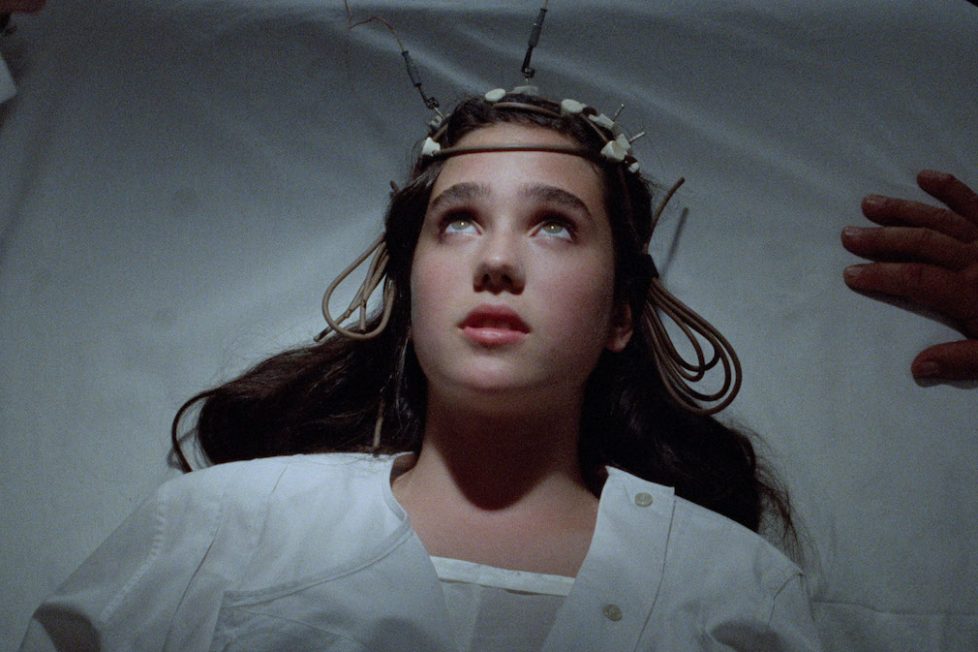
A young girl, with an amazing ability to communicate with insects, is transferred to an exclusive Swiss boarding school, where her unusual capability might help solve a string of murders.


Already a force in horror thanks to his early-1970s giallo movies, before coming to wider attention with supernatural thriller Suspiria (1977), Italian director Dario Argento combined those genres for his mid-1980s horror Phenomena (retitled Creepers in the US). The movie concerns a 15-year-old girl called Jennifer Corvino (Jennifer Connelly), who arrives in the “Swiss Transylvania” to attend a girls boarding school, eight months after a Danish tourist was stabbed and beheaded by a serial killer still at large.
What makes Jennifer special is how she can telepathically control insects; a talent she only begins to make sense of after befriending local entomologist John McGregor (Donald Pleasence), a forensic specialist with a pet chimpanzee who’s helping the police with their investigation into the spate of murders. It’s not long before Jennifer’s abilities and tendency to sleepwalk make her a social pariah at school, even causing her teachers to make arrangements to commit her to a psychiatric facility, but with the help of McGregor she’s determined to use her paranormal gift to find the killer’s hideout.
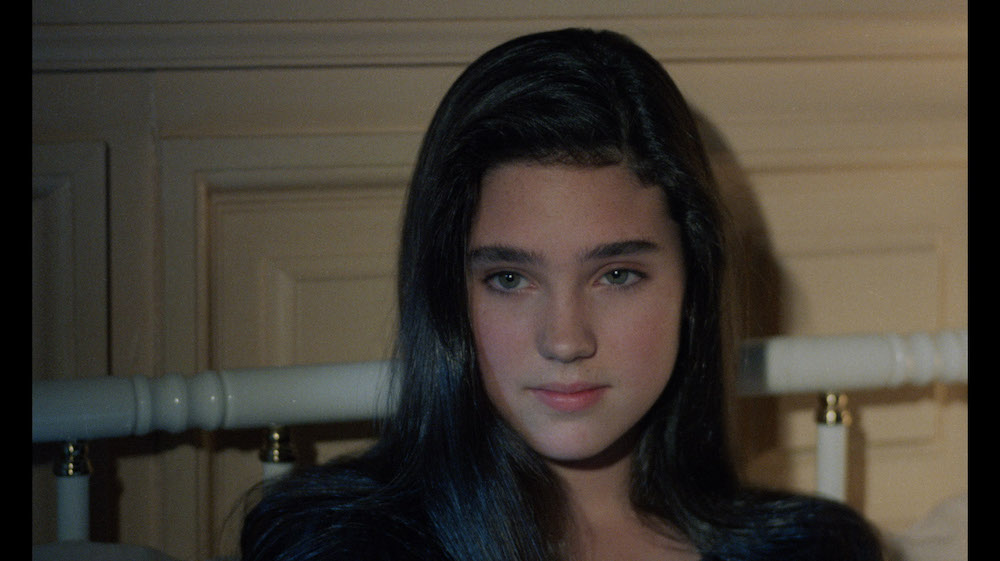
Phenomena is a very interesting and atmospheric film, helped enormously by the excellent soundtrack by prog band Goblin (who’d previously worked on Argento’s Suspiria and Tenebrae), and composer Simon Boswell. Their music is beautifully weird and drizzled in ’80s synth and invigorating guitar licks; filled with bewitching melodies that give Phenomena much of its allure. Controversially, Argento also uses tracks by Heavy Metal bands like Iron Maiden and Motörhead, but I found these very awkward fits for the eerie material. It’s unintentionally amusing when Jennifer walks very slowly across frame, following a firefly into dark woods, as ludicrously uptempo music plays over.

Argento’s skill with the camera is well remarked upon, and in Phenomena he got to play with the relatively new Steadicam, but it’s his longtime collaborator Franco Fraticelli’s editing that sells the stinging moments of horror — especially when the music snaps into silence as a frightening image flashes on screen.
I’m a little hesitant to heap too much praise onto Argento’s work here. A lot of the movie now feels dated and slightly amateurish, while some of the performances are a little stilted. This was Jennifer Connelly’s first leading role, and it must have been challenging working on a foreign project with such bizarre elements at such an impressionable age. Consequently, she never looks entirely comfortable on camera, and often has a rather blank expression when not speaking her lines. Connelly’s notably more relaxed and present during scenes with Donald Pleasence (a fellow native English speaker), so maybe Phenomena’s Italian experience was too much for the teenage Connelly to properly handle. Only a year later she’d headline children’s fantasy movie Labyrinth, so she either improved dramatically in those months, or felt more comfortable working with Jim Henson.
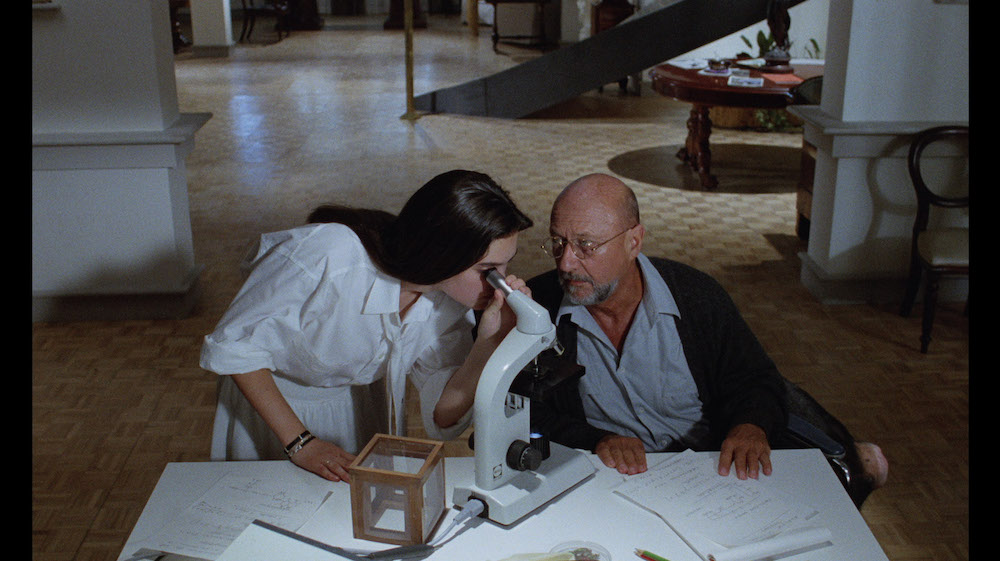
What stands out about Phenomena is its otherworldly qualities, which are heightened by Argento’s Italian sensibilities, and the fact it’s become something of a time capsule to the pre-digital filmmaking era. It feels more like a late-’70s movie than a mid-’80s one to me, with an off-kilter tone and strangeness that’s always charming and often engrossing when the drama and horror work in tandem.
A few things date it visually, like one instance of a rubber hand getting stabbed, or sequences where an animated swarm of flies protect Jennifer, but for the most part it feels authentic and delightfully weird. The characters don’t always behave normally, which I’ll perhaps generously assume was an intentional move to make us fear for Jennifer’s situation in this strange land. For example, seemingly rational adults are quick to describe Jennifer as “diabolic” and that her sleepwalking is a sign of an emerging dual personality, before performing an unnecessary EEG scan on her. (A scene deservedly cut for the 83-minute Creepers version. Some of the movie’s oddest, weakest moments are also eliminated for the 110-minute International version.)
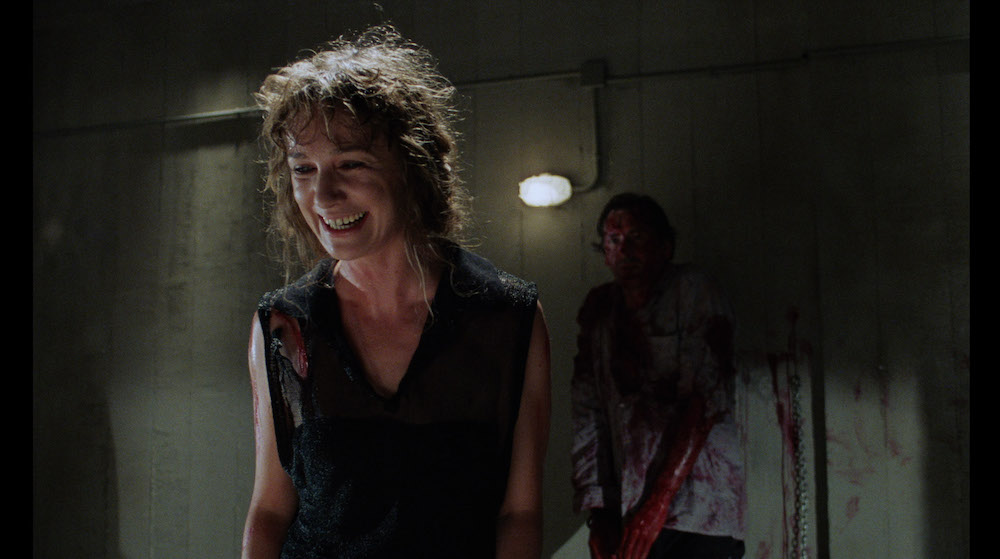
It’s unfortunate not much is made of Jennifer’s ability to control insects, as that’s a big draw for the movie’s premise, but the story could easily survive without it. One imagines a remake of Phenomena would focus more on Jennifer’s power as ‘Lady of the Flies’, with scenes where she controls creepy-crawlies to aide her investigation and stop the psychopath, but Argento’s movie has only a passing interest in her powers. There are a few moments when a swarm of flies play a key role, but for the most part Jennifer just handles the occasional bug on camera while discussing matters with Dr. McGregor.
Argento returns to his obsession with eyes and sight when he occasionally splits the screen into segments, simulating a bug’s POV, and of course there’s the delicious idea that Jennifer becomes a target of the killer after “witnessing” a murder while she was actually sleepwalking and didn’t see a thing.
The finale of Phenomena is by far the movie’s strongest point. Lasting almost half an hour, it’s genuinely strange and gruesome at times, peppered with shocking images and one of cinema’s most surprising decapitations. I wish even more had been done regarding Jennifer’s insect-whispering in the climax, but the murder-mystery plot comes together well, the motivations work fine, and you’re certainly behind the heroine every step of the way. Phenomena is Argento’s own favourite movie of his, but while I wouldn’t go that far it’s definitely a peculiar and occasionally startling watch; totally unlike anything the horror genre’s producing these days.
Review based on the 116-minute Italian cut with new Italian/English hybrid soundtrack.
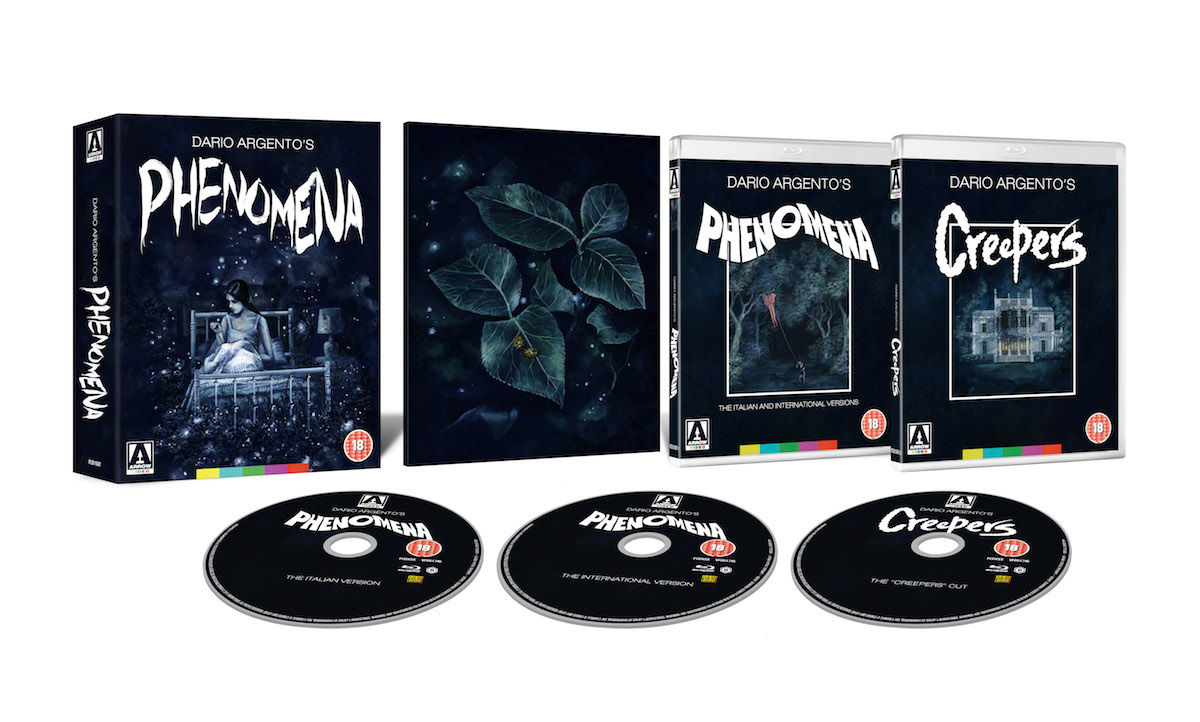
✭ The 116-minute Italian cut features approximately 6 minutes of footage for which English audio does not exist. In these instances, the hybrid track reverts to Italian audio with English subtitles.
director: Dario Argento.
writers: Dario Argento & Franco Ferrini.
starring: Jennifer Connelly, Daria Nicolodi, Dalila Di Lazzaro, Donald Pleasence & Patrick Bauchau.
